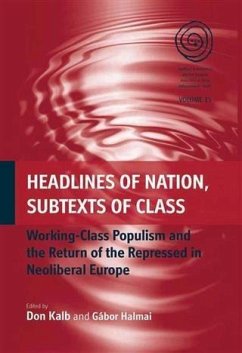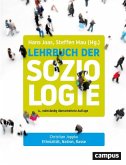Since 1989 neo-nationalism has grown as a volatile political force in almost all European societies in tandem with the formation of a neoliberal European Union and wider capitalist globalizations. Focusing on working classes situated in long-run localized processes of social change, including processes of dispossession and disenfranchisement, this volume investigates how the experiences, histories, and relationships of social class are a necessary ingredient for explaining the re-emergence and dynamics of populist nationalism in both Eastern and Western Europe. Featuring in-depth urban and regional case studies from Romania, Hungary, Serbia, Italy and Scotland this volume reclaims class for anthropological research and lays out a new interdisciplinary agenda for studying identity politics in the intensifying neoliberal conjuncture.
Dieser Download kann aus rechtlichen Gründen nur mit Rechnungsadresse in A, B, BG, CY, CZ, D, DK, EW, E, FIN, F, GR, HR, H, IRL, I, LT, L, LR, M, NL, PL, P, R, S, SLO, SK ausgeliefert werden.



